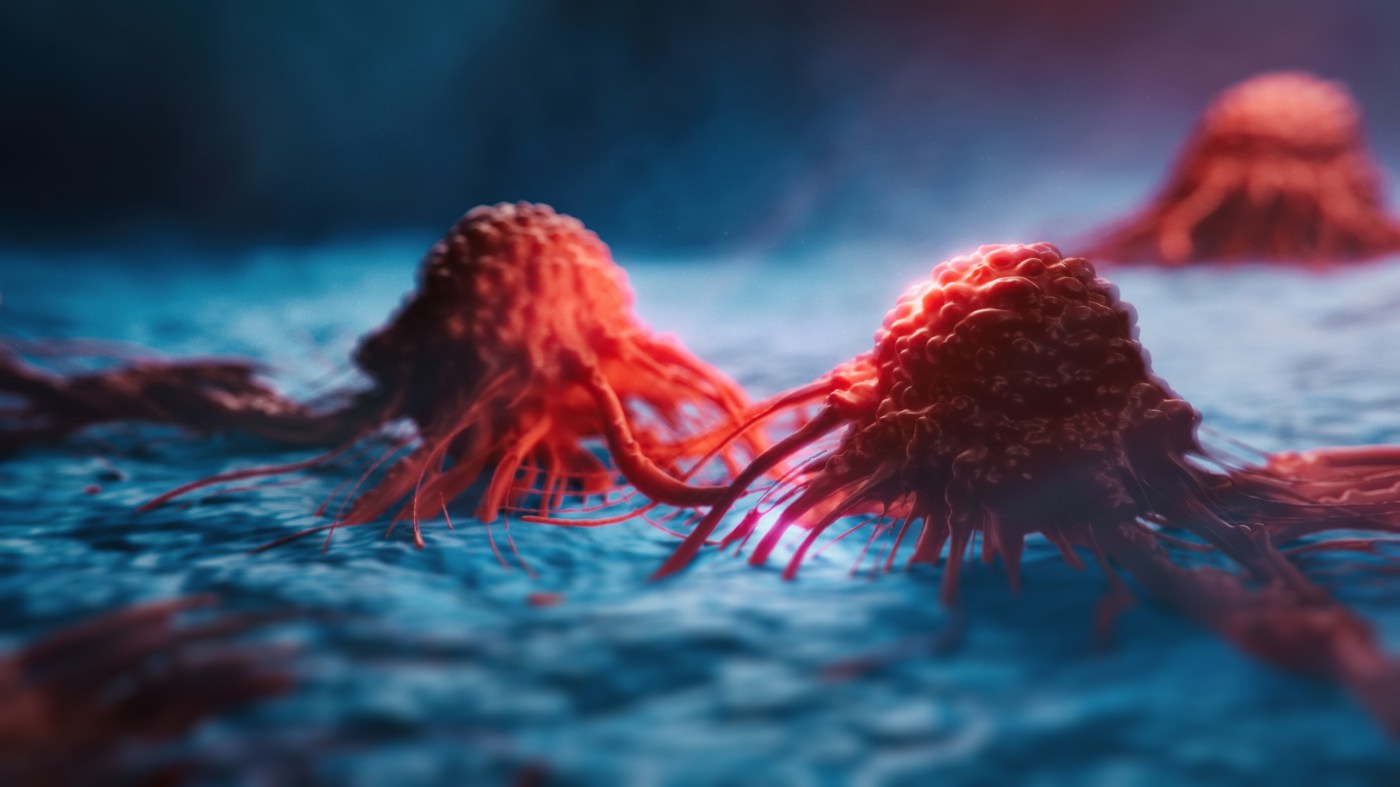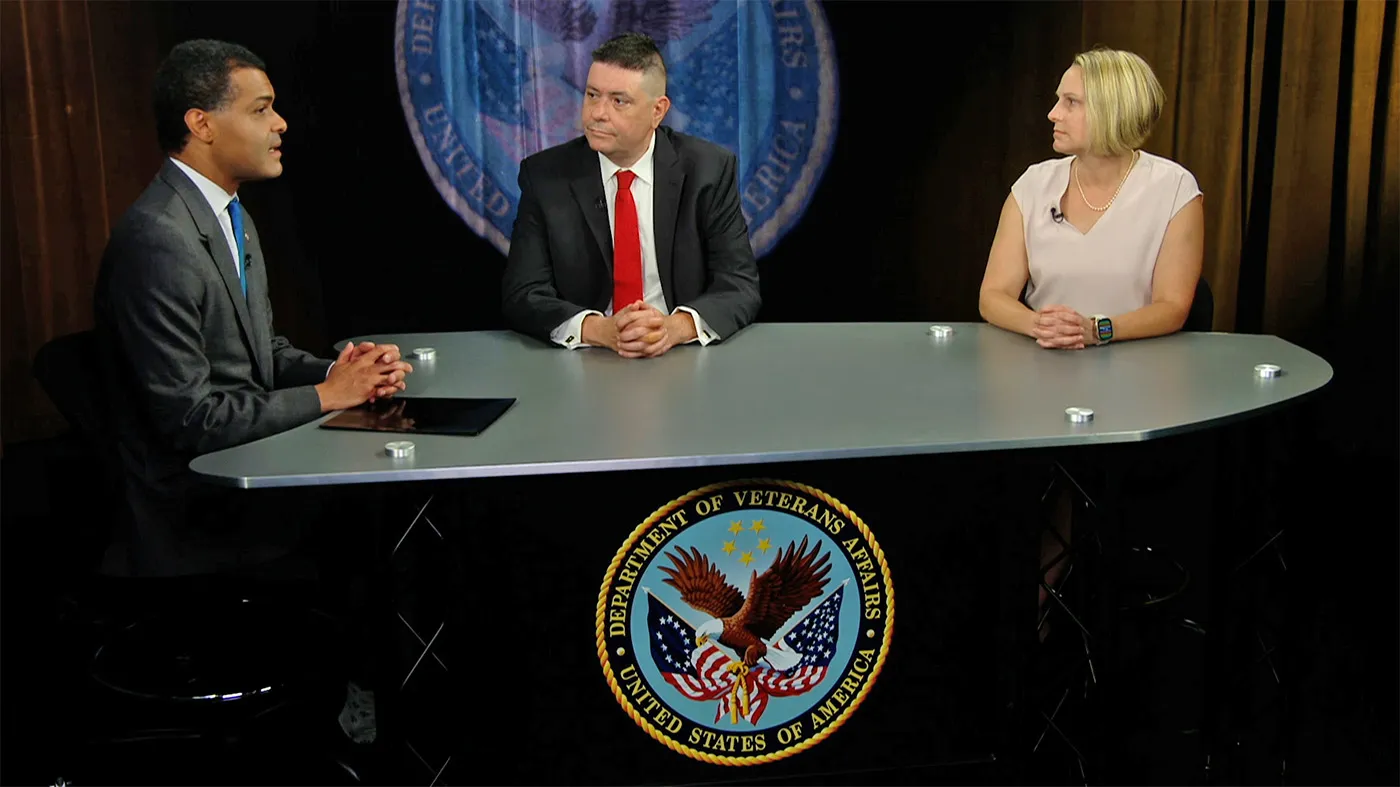Telltale proteins called neoantigens can serve as potent weapons in the fight against cancer. VA researchers recently conducted two studies to identify which neoantigens can best harness the power of the body’s immune system.
A team of VA investigators and colleagues conducted two studies focused on neoantigens, unique protein segments that can form in cancer cells because of a mutation in the tumor’s DNA. Neoantigens, which do not exist in healthy cells, can play a starring role in fighting cancer. The proteins can earmark enemy cells and spur the immune system into action, explains VA researcher Dr. Karen Taraszka Hastings, a dermatologist with the Phoenix VA Health Care System in Arizona and principal investigator on both studies.
VA research assistant Elizabeth S. Borden says neoantigens play an important role in the body’s war on cancer. “By tagging cancer cells, neoantigens help direct the body’s natural immune response – including the cancer-fighting response of the immune system’s T cells – and they can also help vaccines and other immune system-based treatments detect and destroy cancer cells,” she explains. Borden is an M.D./Ph.D. student at the University of Arizona College of Medicine–Phoenix, and is first author on both studies.
‘The promise of improving health care’
In the two VA-supported studies, Hastings and Borden collaborated with colleagues at the University of Arizona who specialize in statistical analysis and evaluation of biological data. Hastings is an associate professor at Arizona State University, with an academic focus on immunobiology.
The team’s neoantigen studies “have the promise of improving health care for Veterans and others with cancer by helping to identify which patients have the cancer types most likely to respond to which immunotherapies,” points out Hastings, who treats many VA patients with melanoma and other skin cancers.
The “Frontiers in Oncology” article reviewed existing research into the therapeutic potential of different neoantigens. The article details not only current knowledge, but also gaps in understanding. “We hope this review will provide a good starting point and reference for other researchers aiming to improve neoantigen prioritization for applications in cancer immunotherapy,” Borden says.
Immunotherapy does not help all cancer patients
The literature overview is important because the ability to predict which neoantigens are present in a cancer cell, and which can unleash an immune response, is crucial in cancer treatment. Knowing whether immunogenic neoantigens are present could help identify patients who may benefit most from a certain therapy. And, for personalized cancer vaccines, knowing which neoantigens are present and can stimulate an immune response is key to generating an effective vaccine.
Some therapies already harness the power of the body’s natural immune response to destroy cancer cells. One such therapy, “immune checkpoint inhibition,” safeguards the ability of the body’s T cells to destroy tumor cells by blocking biological signals that would get in their way. “Immune checkpoint inhibition has revolutionized treatments for many types of cancers by its ability to recognize and destroy tumors,” Borden says.
But Borden emphasizes that not all cancer patients respond to this type of immunotherapy. The team’s other study, NeoScore, aims to identify which neoantigens best trigger an immune response and which patients are most likely to respond to treatment. The study also aims to support the development of new therapies, like personalized cancer vaccines, to treat patients for whom current treatments fall short.
More Information
Click here to read more.
Click here to learn more about VA research.
Topics in this story
More Stories
Diverse representation of women in health care research allows MVP to make discoveries for women’s health
Join the Million Veteran Program online. You will have the option to receive an at-home blood sample collection kit in the mail.
VHA's new podcast series, New Horizons in Health, features a candid discussion of psychedelic assisted therapies for Veterans experiencing mental health conditions.







This article is way above the average person’s head. It would be helpful if it described in layman’s terms whether the antigens are injected, ingested, or just happen to be there. Also just what is done in the way of therapy? Much too scholarly with no usable information for the layman.